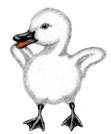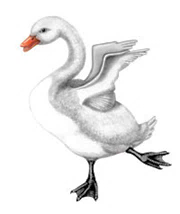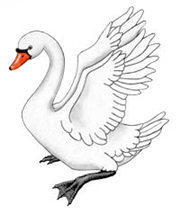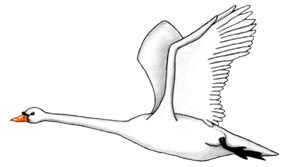by C. Suzanne Schneider, Ph.D.
Gifted people can be very different from one another, and no one person will exhibit all the characteristics listed below. These characteristics may be manifested in both positive and negative ways.
Characteristics Common Among Gifted Children

- Talks a lot and has an unusually large vocabulary.
- May do things earlier than others of average intelligence.
- May be bigger, stronger and healthier than age peers.
- Is highly sensitive.
- Shows uneven rate of development, e.g., relative developmental delays in fine motor control are not uncommon, especially among gifted boys.
- Sees and understands things cognitively before having the emotional resources to deal with what she/he sees.
- Seems to have endless energy and can be exhausting for adults to deal with.
- Likes to collect things of interest to him/her.
- Responds to beauty, has aesthetic interests, and is sensitive to patterns and arrangement.
- Prefers games with rules that may be too complicated for age peers of average intelligence to follow and enjoy.
- Lacks awareness of the impact his/her gifts and behavior may have on other people.
Learning Characteristics

- Is curious about many things; asks endless probing questions about such things as life, death, social and political injustice, and other world problems.
- Loves to read, and reads at an advanced level.
- Needs mental stimulation (brain food); needs to understand.
- Loves to learn and has a larger than average fund of general knowledge.
- Learns rapidly and easily; absorbs information like a sponge.
- Reasons well, and solves problems at a superior level.
- Typically performs at least one or two grades above age- and grade-level expectations academically.
- Can concentrate and pay attention for long periods; may want to continue working on a project long after classmates have moved on to other things.
- May finish only part of a project and then decide to do something else.
- Is easily bored by rote memorization and routine or repetitive tasks; may find schoolwork boring.
Other Signs of Giftedness in Adolescents,
Adults & Some Children

- Feels different and may behave differently from age peers of average intelligence.
- Is intense, and may have intensely focused interests.
- May have such varied interests and abilities that making choices among them may be difficult; may need help setting priorities and focusing energies and efforts.
- Interests and actions may diverge from traditional sex-role norms and expectations.
- Tends toward over-reliance on intellect for coping and defense, even in emotional situations.
- May be overly competitive, or may refuse to compete.
- May lack close friends and feel lonely and socially isolated, even when popular.
- Organizes and leads group activities; may dominate others and act bossy.
- May stand aloof, be self-sufficient, and seem to be a loner.
- May show a preference for friends who are older.
- May lack trust in authority figures. May challenge teachers’ inaccurate statements in order to gain recognition and respect.
- Has a strong sense of right and wrong, justice and fairness.
- Has the ability to conceptualize using abstractions and a variety of symbol systems: verbal, visual, mathematical, musical, chemical, artistic, etc. Enjoys playing with symbol systems through puns, math problems, etc.
- Has a grown up sense of humor.
- Is very observant. Perceives problems, connections, cause and effect relationships and inconsistencies that others may miss. Looks for similarities and differences.
- May be eager to share perceived connections and associations related to but outside the prescribed curriculum.
- May be so eager to share knowledge that this enthusiasm may be perceived as showing off.
- Draws generalizations and can transfer learning from one situation to another; this may be both an aid to learning and a source of difficulty in interpersonal relationships.
- Shows disconcerting tendency to ask questions that others may never have thought of asking.
- Sets high expectations for self and others.
- Strives for perfection, and may procrastinate.
- Has low frustration tolerance and may become impatient with others less able.
- May be unreasonably critical of self and others.
- Has greater than average needs for independence, and prefers to work independently.
- Shows initiative, needs little direction, and is very resourceful.
- Has high needs for self-actualization. May have a sense of mission or purpose.
Additional Characteristics Common
Among the Creatively Gifted

- May have exceptional talent in art, music, writing, dance or drama.
- Is adventurous, uninhibited, and a risk taker.
- Shows a preference for global-simultaneous, Gestalt-like, intuitive thinking.
- Likes to invent new things and devise different ways of doing things.
- Seeks creative alternatives, generates original ideas, and sees multiple solutions to problems.
- May see and say things that challenge the status quo.
- Loves to fantasize or daydream and play around with ideas.
- Shows high level of imagination when creating stories, improvisations, and excuses.
- Prefers complexity, accepts disorder, and is able to tolerate ambiguity without pushing for premature closure.
This list of characteristics combines the author’s professional experience with ideas derived from materials written by Barbara Clarke (1997), Howard Gardner (1993), Ann Isaacs (1976), and James LoGiudice (2003).